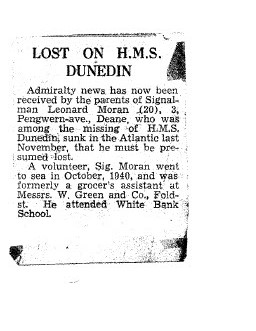Thanks go to Leonard’s nephew, Christopher Moran, for the following photos, biography and accompanying documents.
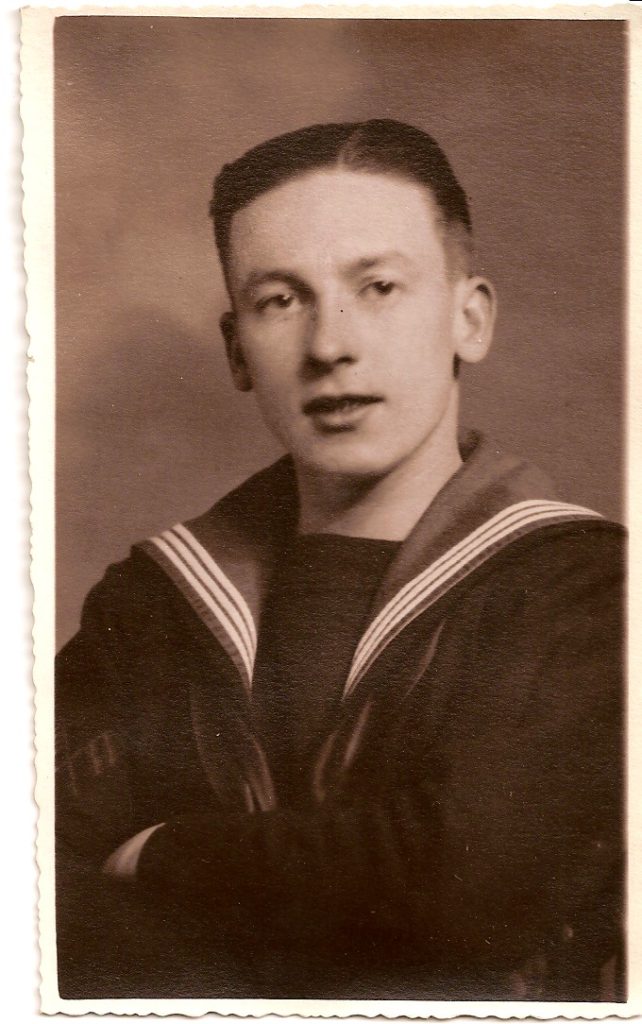
Leonard in Naval uniform c1940
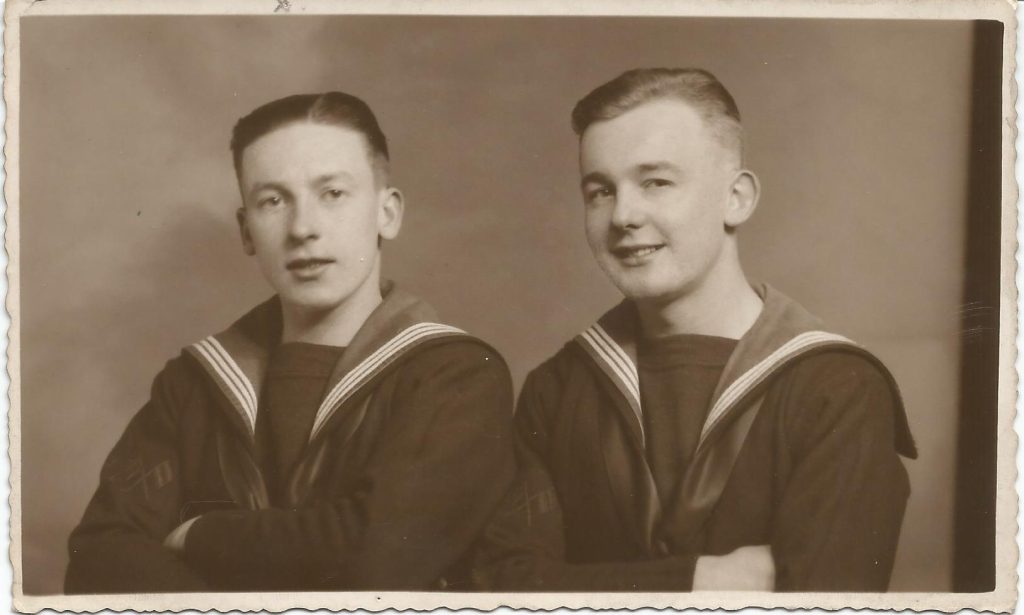
Leonard with an unknown friend
Leonard Moran was born on June 9th 1921 in Deane, Bolton, the second son of William Henry Moran, an operative cotton spinner, and his wife Ivy Moran (nee Quinn). Len’s father and his three uncles had all fought in the First World War. One of his uncles was killed in action, another won the Military Medal, and the career of the third, Owen Moran, a young boxer with a regional reputation in the North of England, was ended by five machine gun bullets in the knee. Only Len’s father survived physically unscathed.
Len led an active life. His uncle Owen trained a generation of young Bolton boxers, including Len, and Len’s father was Secretary of Bolton Amateur Boxing Club (among many other activities). Len’s Sundays were dedicated to hiking and especially cycling. Other leisure activities included cricket, and dancing at the Palais de Danse, the centre of Bolton’s night-life.
He was a popular young man – in one of his letters from HMS Dunedin, he says he is in correspondence with twenty four people. He was attentive and caring. He would go round to have tea with his grandmother at her house every weekend. She was broken-hearted when he died.
After leaving school, Len worked in Green’s, a grocery shop in Bolton town centre, where his elder brother was manager. He volunteered in 1940, and was called up on October 21st 1940. He seems to have been on leave at Christmas 1940, and again in March 1941.
In his letters home, he says, for obvious reasons, little about life on the ship. But he does mention a few things. “I only get one full nights sleep (9-5.30 am) every fourth night, the other three nights I either have a First, Middle or Morning Watch.” The crew had to wash their clothes every day “because we are in whites”. The weather was hot, and they took baths once or even twice a day.
His death on HMS Dunedin was deeply felt by his parents, his brothers and sister, his grandmother and his aunts. Things were made worse by the long period of uncertainty about whether he might have survived. His mother was said to have aged ten years after his death. Within two years, his parents had separated.
On the kerbstone of the grave of his grandmother in Deane Churchyard, there is an inscription which reads: Leonard Moran, RN, aged 20, died at sea, 24.XI.1941. Also recorded is the name of his cousin, Joe Crompton, killed when his troopship was torpedoed leaving Liverpool on November 7th 1944.
Christopher Moran
The photo below was taken on board HMS Dunedin on 6th July 1941, about the time that Leonard wrote the poem that follows.
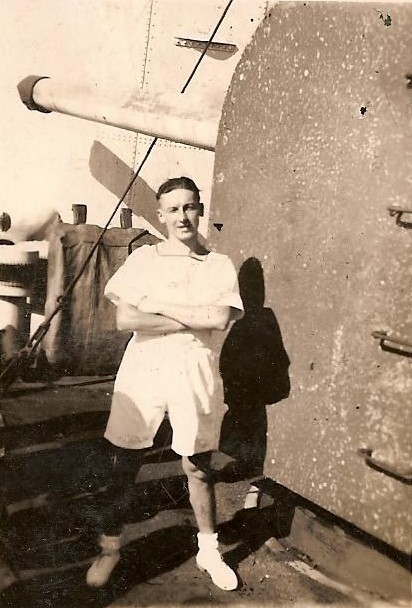
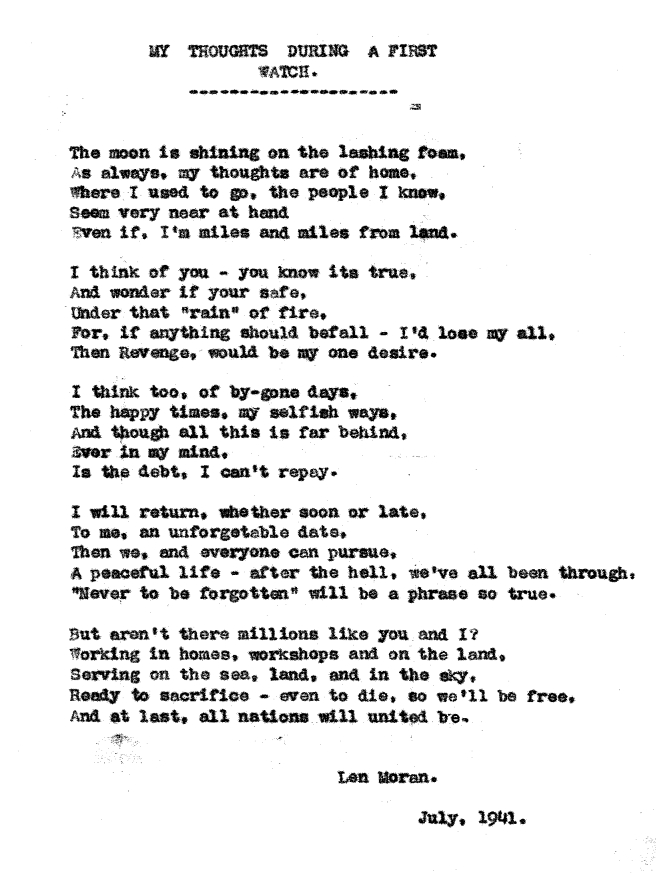
In the aftermath of the sinking the Admiralty had to piece together lists of survivors and casualties. For the families of those men who went missing, it would take a long time, sometimes many months, before they knew for sure what had happened to their loved ones. The families of most of the casualties were initially told that their loved one was missing, giving them a semblance of hope that they had survived. Only those men who had been seen to have died by the survivors could be officially declared casualties. For the rest, it would be an agonising matter of time before the Admiralty could conclude that a specific member of the ship’s company had died. This seems to have been the case with Leonard, as the following documents show.
First, we see a newspaper article reporting that Leonard is missing but that he might have been picked up.

Next is the letter sent to Leonard’s mother referred to in the article. It was sent on 8th December 1941, the day after the sixty-seven survivors had been landed at Trinidad.
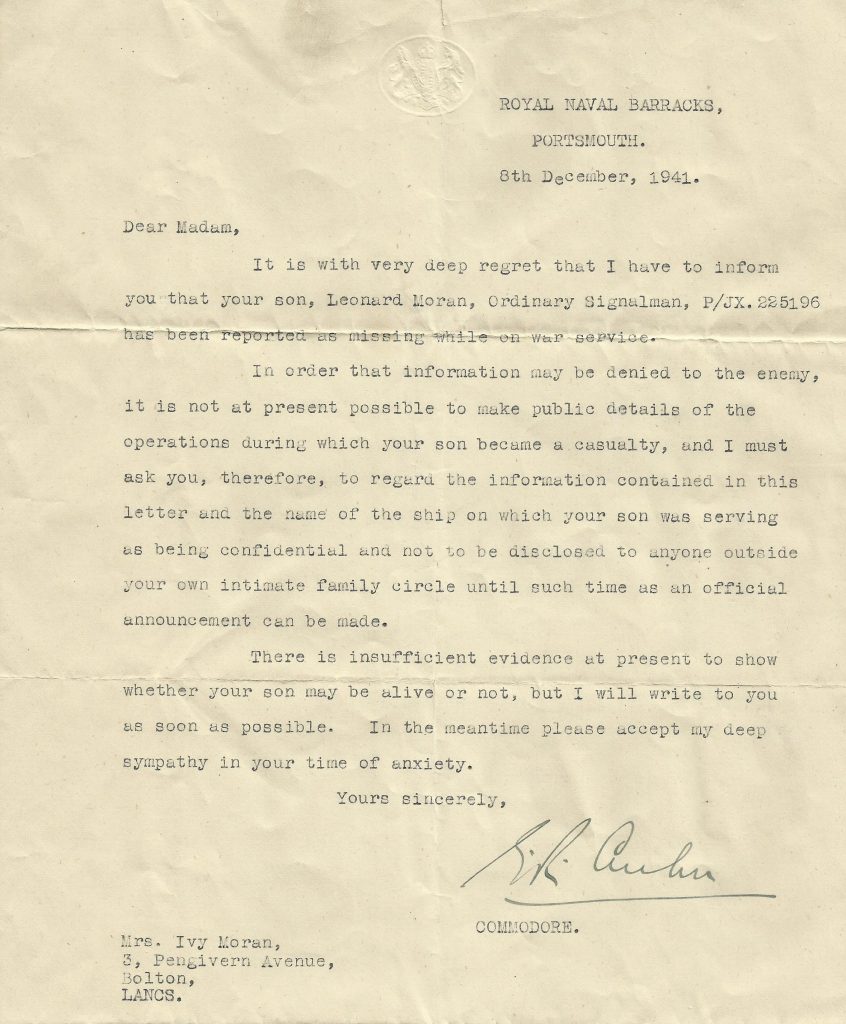
And, finally, the sad news reported in another newspaper article, confirming that Leonard had been lost.
